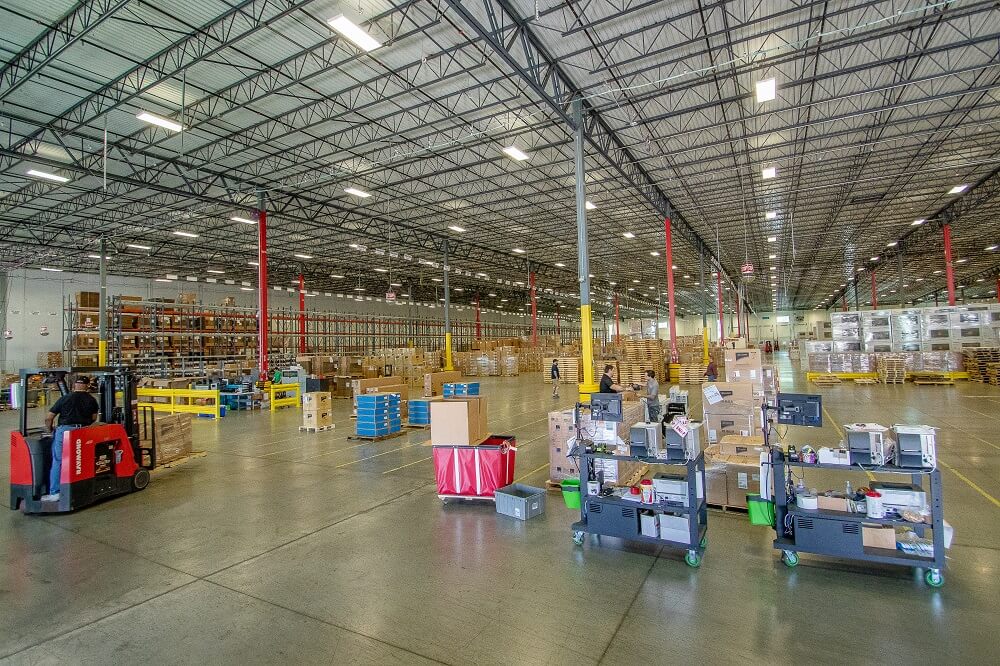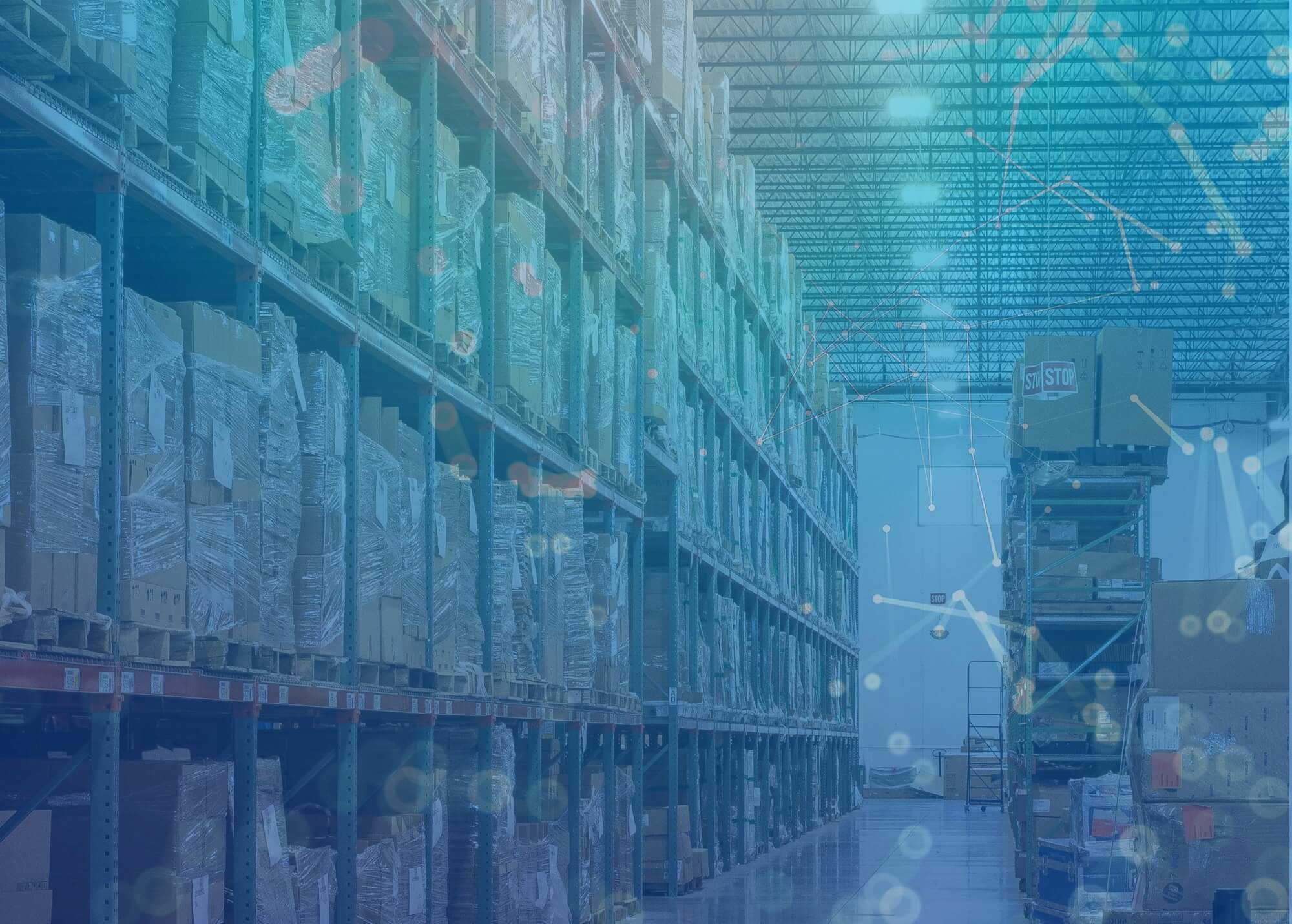The Industrial Revolution 1.0 began with the age of steam and mechanized production, transforming into 2.0 with the advent of electricity and assembly line production. Industry 3.0 dawned with the early phases of computing and automation. Now, the global economy is embracing Industry 4.0, the culmination of all that went before it with an added layer of interconnectivity and real-time data. As the transformation to this new era advances, IT original equipment manufacturers (OEMs) must consider the impact that shifts in technology, changes in customer demands and market conditions have on their supply chain and manufacturing processes.
What is Industry 4.0?
Industry 4.0, or the fourth industrial revolution, combines information and communication technologies with a focus on interconnectivity, Internet of Things (IoT) and automation. It reflects the ongoing evolution and utilization of new technologies such as IoT, autonomous infrastructures, next-gen technologies such as artificial intelligence and advanced analytics, connecting to drive the most comprehensive set of decision-making criteria the world has ever known.
However, many OEMs face headwinds while implementing Industry 4.0 solutions. One of the most critical hurdles is full organizational buy-in to the strategy. According to a recent article, “53% of legacy manufacturers say their digital initiatives either failed to launch or weren’t fully adopted.” Challenges include lack of technological understanding of various technologies, budget, IT infrastructure, competing interests in determining objectives and lack of consensus on a strategic vision for the initiative.
To achieve the benefits of this latest revolution, organizations must thoughtfully develop and deploy a dynamic plan to adopt and implement the entirety of what Industry 4.0 represents to realize the positive effects it offers.
What Does Industry 4.0 Mean for OEMs?
OEMs must identify top strategic challenges across all business segments and applicable technologies required to support the initiative. The organization must commit resources and create a culture that maintains a consistent dedication to the long-term goal. After all, Industry 4.0 adoption is a process more than it is a single project.
At the tactical level, Industry 4.0 technologies represent the potential for greater efficiency and cost-effectiveness, allowing OEMs to more effectively modernize their supply chain and logistics networks and respond to rapidly changing demands. The new processes can lead to on-demand production and lower warehousing and inventory costs as data-driven manufacturing streamlines the process. The organization must develop a model that harnesses the stream of data points to support constructive decision-making power that benefits all aspects of the brand. To be effective, the analytics stack must dynamically filter out noncritical information and distill that data quickly and accurately into meaningful and action-based insights.
Ultimately, adopting an Industry 4.0 strategy enables enhanced customer service, more accessible entry into new markets and faster, agile capabilities to anticipate and respond to changing market drivers.
How OEMs Can Embrace the Challenge of Industry 4.0
The challenges of embracing Industry 4.0 differ for established OEMs compared to newer, born-in-the-cloud organizations.
Born-in-the-cloud OEMs built on a SaaS or asset-light model have in some ways already adopted Industry 4.0 by utilizing the massive amounts of real-time analytics available to them. Driven by real-time data, OEMs can automate decisions to remove many of the dangers of missing opportunities driven by rapidly shifting market demands.
Established OEMs may find Industry 4.0 more challenging due to historical manufacturing and production environments in which they operate. These OEMs benefit from a base-level systems infrastructure, a proven change management platform to deploy major organizational shifts and the resources and funding to formulate and evaluate a long-term strategy and culture shift.
While digital transformation represents a growth area for technology OEMs, change can be difficult and disruptive, especially when replacing established tools with new technology that requires specialized skills and understanding.
Partnering with an expert supply chain and services provider can help businesses free up working capital and staff, enabling transformation without jeopardizing existing customer relationships.
With Industry 4.0 modernization, you can transform your logistics network to:
- Boost efficiency and productivity
- Improve agility and flexibility
- Increase profitability and sales
- Enhance the customer experience
- Streamline compliance processes
- Provide timely and accurate information more easily
- Make businesses work faster and become more granular
Although the benefits of supply chain modernization vary significantly across industries, one thing they have in common is creating a model that enables access to unprecedented insights and connectivity.
Transforming the OEM Supply Chain for Industry 4.0
Shyft Global Services has supported many OEMs on their modernization journey with comprehensive end-to-end services. With this relationship, OEMs can deploy a variable-cost operating model that empowers them to scale their business on seasonality or uncontrollable market drivers. Tap into the proven experience of Shyft as your modernization partner to outsource services such as supply chain, logistics and global product and customer lifecycle management services. At the same time, your business transforms how it engages with the market, providing a superior customer experience while delivering improved financial performance through data-driven decision-making.
Industry 4.0 is the new way to do business, and established OEMs must modernize to maintain their footing in the industry. Don't get left behind — discover the impact of Industry 4.0 and how you can free up more working capital and human power to accelerate your company throughout and beyond the next industry revolution.
About the Author

Matt Smith serves as the Business Unit Specialist for Shyft Global Services’ supply chain management services offering and has been with Shyft since 2018. Matt has 18+ years of experience in the contract transportation and logistics business, focused on fostering relationships and implementing programs that have solved a wide array of global customer challenges. He is responsible for Shyft’s supply chain business development functions across the Americas, EMEA and Asia-Pacific regions to drive profitable revenue streams as well as solutions designs that support global technology companies.





